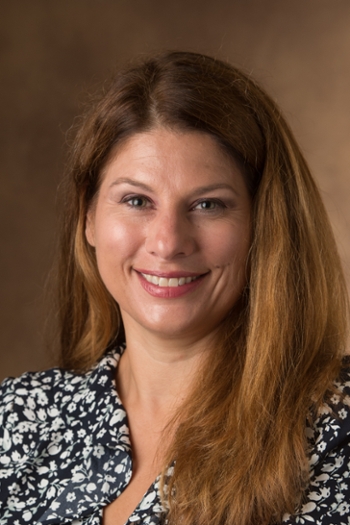SIUE Alumna Dr. Jennifer Hernandez Champions Equality in the Classroom
 At first glance you might categorize her as Caucasian. However, if you look closer, listen more intently and observe longer, you will arrive at a different conclusion, and possibly a respect and appreciation for Southern Illinois University Edwardsville alumna Jennifer Hernandez, PhD.
At first glance you might categorize her as Caucasian. However, if you look closer, listen more intently and observe longer, you will arrive at a different conclusion, and possibly a respect and appreciation for Southern Illinois University Edwardsville alumna Jennifer Hernandez, PhD.
“I define myself as a Latina female who passes for a white woman in most settings,” said Hernandez, associate professor in the School of Education, Health and Human Behavior (SEHHB). She earned her bachelor’s in special education/emotionally disturbed in 2000 from SIUE.
“I am extremely aware of the privilege I carry when I am assumed to be white,” she said. “Once my ethnicity is known, my experience shifts greatly. I also define myself as a mother, a forever student, teacher and scholar, and a passionate social justice advocate. I have been protesting injustice since my early childhood, and I continue to advocate for those who are marginalized in our society.”
As SIUE prepares to observe its second annual Diversity Day to be held Monday-Tuesday, Oct. 14-15, several University students, faculty and staff discuss the meaning of the phrase, “I Am SIUE.”
Hernandez came to SIUE in 2017 with a curriculum vitae loaded down with special education and social justice experience. She is a veteran special education teacher, who has primarily taught students with emotional disturbance, mental illness and incarcerated youth in secondary alternative settings. She was a special education administrator in the Ferguson-Florissant (Mo.) School District, and a witness and student advocate in the aftermath of the fatal shooting death of Michael Brown. Hernandez worked as an ally for the Ferguson community and the local Black Lives Matter organizers.
Hernandez’s doctorate from the University of Missouri-St. Louis in 2013 was in educational leadership and policy studies, with a minor in social justice. The crux of her doctoral research included the critical analysis of racialized policies that facilitate the school-to-prison pipeline.
At SIUE, Hernandez teaches anti-bias/anti-racism instruction for teacher candidates and supports the secondary education program with state licensure.
“I view myself as an advocate for all students by supporting teacher candidates in creating inclusive, democratized classrooms that minimize bias within the learning community,” said Hernandez. “I am extremely happy that SIUE welcomed me home to share my experiential learning and expertise. I want to make great change in the institutional racism, sexism, classism, heteronormativity, Christian hegemony and language oppression in our public schools, in order for every student to feel valued, accepted, and have access to equitable opportunities for high quality education.”
Whether it is inside or outside of the classroom, Hernandez says diversity is critical.
“Diversity is always a positive thing, because the more points of view at the table, the more clear the solutions become,” she illuminated. “Diversity can cause fear because of our individual need to control outcomes. In contrast, fully inclusive spaces create a balcony view for all to see the inequity and the possible remedies.”
Photo: SIUE alumna Jennifer Hernandez, PhD, associate professor in the College of Arts and Sciences’ (CAS) School of Education, Health and Human Behavior (SEHHB).









